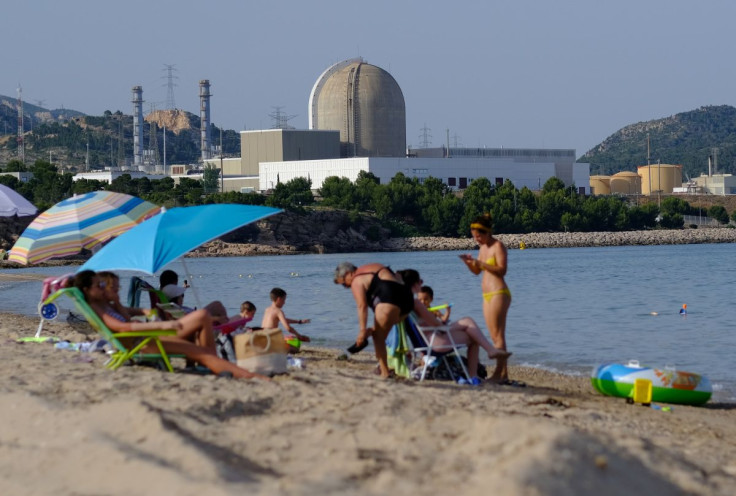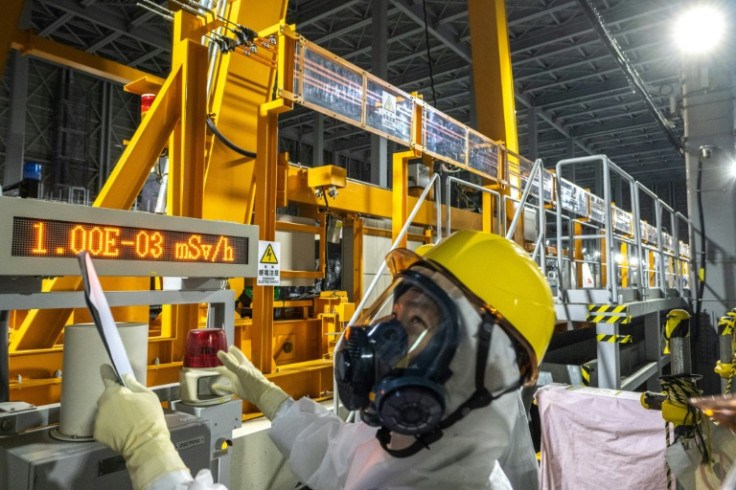Nuclear Energy Gets A Push In The West From United Kingdom Energy Act

The United Kingdom enacted legislation last week facilitating the expanded use of nuclear energy, marking a potential turning point in nuclear power's use in highly developed western countries.
The United Kingdom's landmark Energy Act received Royal Assent on Thursday, becoming law and unlocking over $120 billion in private investment directed toward the development of low-carbon energy systems. The Act also introduces a new utility tender process aimed at reducing national electrical costs and increasing competition in renewable energy sectors.
The Act authorizes the revival of a publicly-owned company, Great British Nuclear, to oversee new nuclear projects. The UK aims to quadruple national power generation capacity from nuclear energy from 6GW to 24GW by 2050, and it now has the logistical means to carry out that long-term objective.
The Energy Act was described as "the biggest piece of energy legislation in the UK's history" in a press release from the UK Department of Energy Security and Net Zero. The Act's measures are estimated to save UK households $1.2 billion annually by 2050 and $510 million over the next decade, according to government sources.
"The Energy Act is a statement of intent to support a flourishing British nuclear and low-carbon energy sector," Minister for Nuclear and Networks Andrew Bowie, MP, said in the press release.
After receiving criticism for reorienting its net-zero pledge in September, the UK government unveils its new energy policy with a strong emphasis on nuclear energy as a transition fuel. While a nuclear-centric strategy may not exactly align with the climate strategy laid out in 2019, it's possible that this legacy technology could still help to reduce carbon emissions in Great Britain as part of a broader return to prominence in western countries.
Nuclear Energy Making A Comeback?
After a decade-long freeze in new investments following the 2011 Fukushima disaster, nuclear energy appears to be on the rise once again as highly developed democracies look to diversify their energy sources in pursuit of energy security and decarbonization.
It's not just the UK making long-term commitments to nuclear power in the West. Bulgaria decided to commission two new nuclear reactors on Wednesday; Poland finalized plans in September with Westinghouse to construct three new reactors at the country's first nuclear plant; France has long been the leading nation in terms of nuclear power, sourcing 68% of its electricity generation from nuclear plants in 2021, and in 2022 announced the commissioning of eight new reactors.
Even the Japanese government, who just this year began releasing contaminated wastewater from the Fukushima Nuclear Power Plant, in December committed to refurbishing old nuclear reactors and opening new ones throughout the country, with the aim of generating at least 20% of Japan's electricity from nuclear power by 2030.
Nuclear energy provides attractive incentives to countries looking for new energy solutions. Although it is inherently non-renewable, its carbon footprint across the construction and power generation processes is substantially less than those of traditional fossil fuels, and the electricity it produces can be used to generate hydrogen fuel. Nuclear power also provides a geopolitically secure source of energy for countries with stable supplies of uranium.
The outlook for nuclear power in western countries is not entirely rosy, however, largely due to concerns of environmental contamination—with the Fukushima disaster serving as the most recent dramatic example, and relatively far removed from other accidents like Chernobyl in 1986 and Three Mile Island in 1979.

Germany notably shuttered its remaining nuclear reactors in April, much to the ire of those critical of the country's enduring reliance on coal and seemingly in spite of the regional energy crisis induced by Russia's invasion of Ukraine; the tense situation around Central Ukraine's Zaporizhzhia Nuclear Power Plant has exposed the potentially catastrophic risks associated with nuclear energy's intersection with interstate conflict. Concerns over the ethics and environmental impact of uranium mining have also led countries like Germany to deemphasize nuclear power in energy planning.
The future for nuclear energy in the West over the next few decades is accordingly mixed, and the pace of its growth or demise will depend largely on regulatory and private sector incentives.
"A changing policy landscape is creating opportunities for a nuclear comeback," International Energy Agency Executive Director Dr. Fatih Birol said in the organization's flagship World Energy Outlook report, released Wednesday.
© Copyright IBTimes 2024. All rights reserved.






















